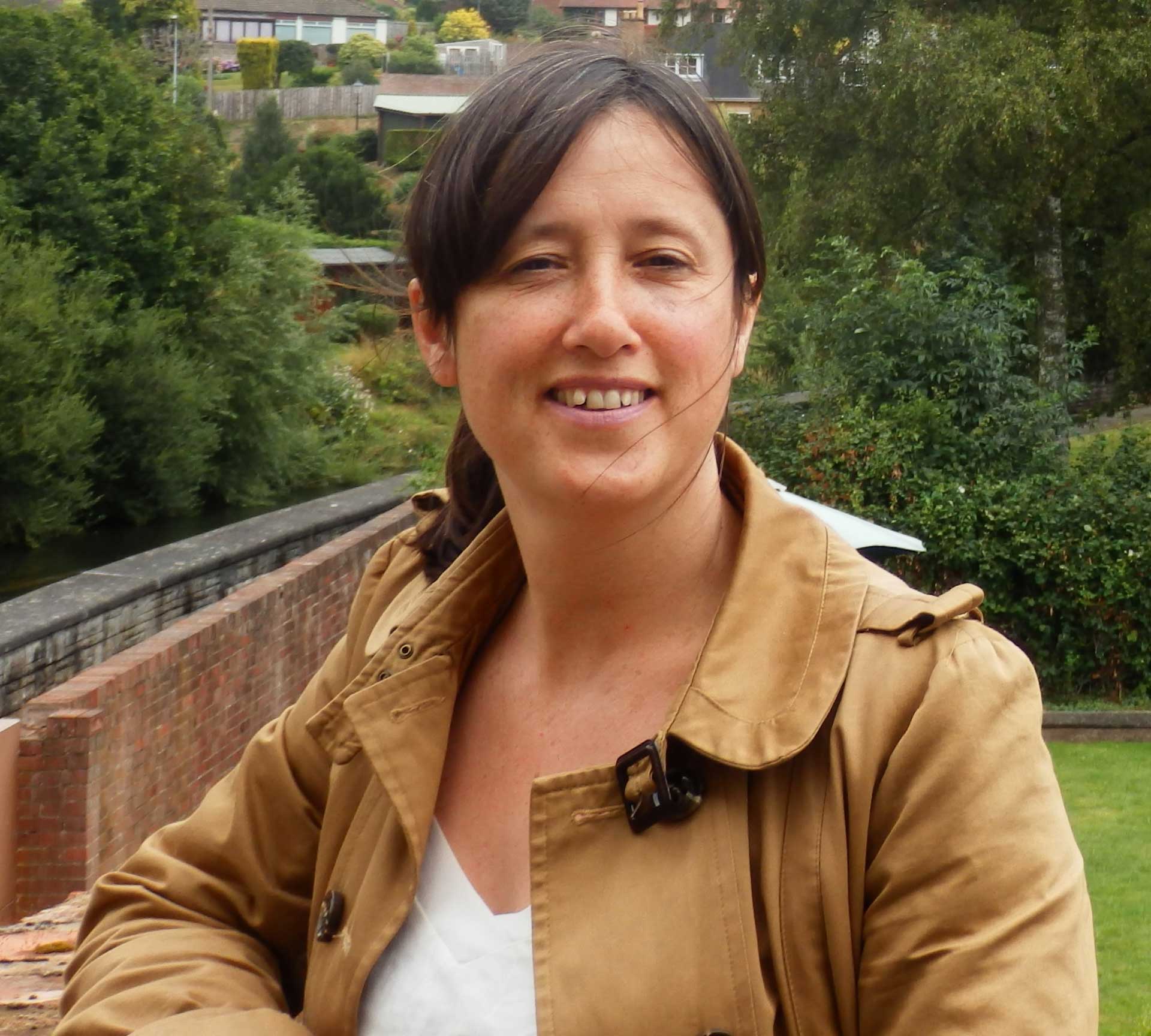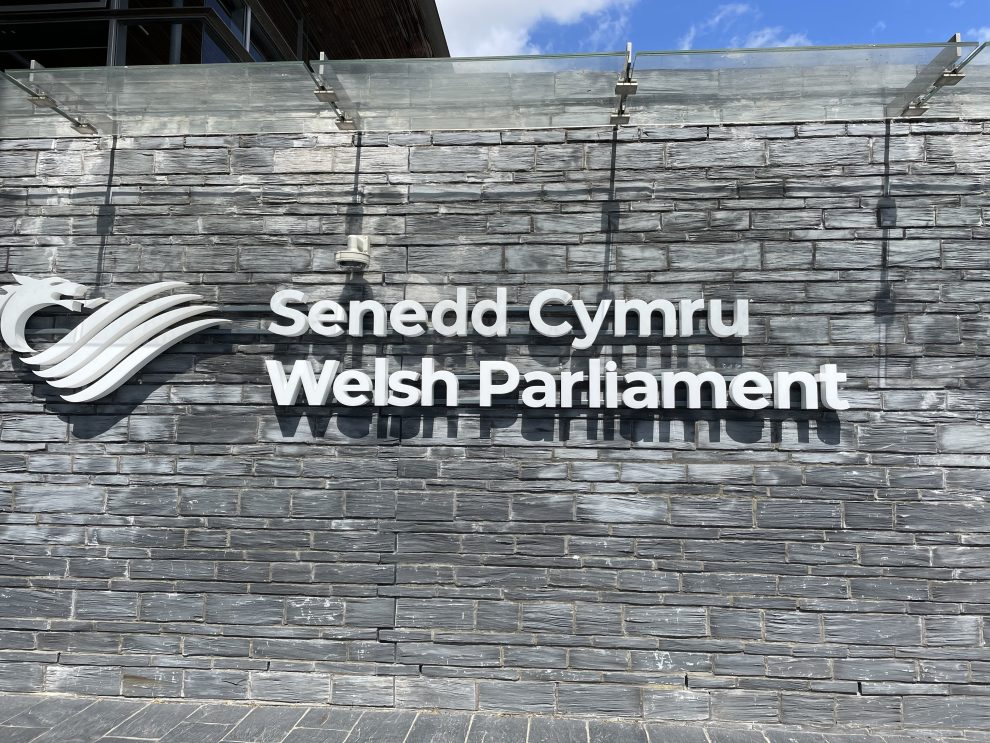Politics
Plaid leader outlines vision
 PLAID CYMRU Leader Leanne Wood AM has this evening (Monday) outlined her party’s plans for reviving Wales’ democracy and delivering an open and accountable Plaid Cymru government if elected in May.
PLAID CYMRU Leader Leanne Wood AM has this evening (Monday) outlined her party’s plans for reviving Wales’ democracy and delivering an open and accountable Plaid Cymru government if elected in May.
Speaking at an Electoral Reform Society event in Aberystwyth University, Leanne Wood detailed how a Plaid Cymru government, within its first hundred days, would consult on the most significant democratic renewal Wales has seen since devolution, including the introduction of a new Welsh Representation of the People’s Act.
She added that a Plaid Cymru government would also extend the franchise so that 16 and 17 year olds have a right to vote, as well as establishing a Youth Parliament for Wales.
Criticising the current Labour Welsh Government’s “bunker mentality”, Leanne Wood said that a Plaid Cymru government “will open up the corridors of power to scrutiny and to discussion”, ensuring Wales’ status as a vibrant and youthful democracy.
Speaking this evening, Plaid Cymru Leader Leanne Wood said: “Within the first one hundred days of a Plaid Cymru government we will consult on the most significant democratic renewal our country has seen since devolution and that will form the basis of our bill that will eventually become the Welsh Representation of the Peoples Act.
“As part of Plaid Cymru’s proposals for a New Welsh Representation of the People’s Act, we will seek to extend the franchise so that sixteen and seventeen year olds have a right to vote at all elections within the competence of the National Assembly for Wales.
“We believe that fostering democratic engagement at a young age should be promoted through the establishment of a National Youth Parliament. The National Youth Parliament we propose will input directly to our national life and our national government.
“We will also consult on digitalising Welsh democracy – learning from countries such as Estonia and trialling digital voting. Digital voting is not new in that country and there is much we can learn in terms of cyber security and election. For too long, engagement in and an awareness of Welsh political developments has been hampered due to the lack of a widely consumed Welsh media.
“It means we must take every possible step to widen access to our National Assembly and its work. Plaid Cymru will consult on the introduction of a new petitioning mechanism.
“The work of the Assembly’s petitions committee has been valuable and we want to build upon it. We will seek to create a mechanism to whereby a petition that gathers ten thousand signatures or more would automatically be debated in the National Assembly for Wales.
“I want people in Wales to have a clear sense of the nature of a Plaid Cymru government. A sense of how we will open up the corridors of power to scrutiny and to discussion.
“The steps I will instigate from the office of the First Minister will begin with publishing all ministerial decisions and holding public cabinet meetings across the nation. I have often spoken of my aim to deliver a devolution dividend for all Wales, economically, socially and politically. Ensuring access to the nation’s cabinet in all parts of the nation is central in all parts of the nation is central to this aim.
“We have endured the best part of two decades of a Labour bunker mentality government. Burying itself away from public view as best it can for fear of attracting scrutiny.
“The government I lead will be different. We will be open. We will be accessible. We will be answerable. We will do our best to make Wales the best it can be. We will doubtless get things wrong along the way. But we will not shy away from scrutiny or accountability.
“That kind of government, coupled with a renewed democracy that can be facilitated by our new Welsh Representation of the People’s Act, will be firm foundations for an old nation to emerge as a vibrant, youthful democracy.”
Steve Brooks, Director of Electoral Reform Society Cymru added:
“Electoral Reform Society Cymru are looking forward to raising the issues around our still developing democracy in Wales in the coming election campaign. We look forward to hearing from parties from across the political spectrum about their vision and ambitions for democracy in Wales. We also look forward to holding their feet to the fire to ensure all voices in Wales are heard, and that we have a National Assembly that represents and delivers for the people of Wales.
“Democracy is about more than just winning seats, or putting an X in the box in the election in May. It is about how we represent the diversity of Welsh communities properly, and how we ensure that the decisions of those in power are made accountable to ensure that we have the best possible policies to deliver for people in Wales. We look forward to ensuring that this remains a central part of all parties’ vision for the next Assembly term.”
News
Too many children in Wales living in poverty – Lib Dems want action

THIS week in the Senedd, the Welsh Liberal Democrats renewed their demands for the implementation of child poverty targets.
According to a report from the Bevan foundation, 29% of children living in Wales are currently experiencing poverty (an estimated 190,000 children).
The same report highlighted that the largest percentage of children living in poverty are from working households or in couple households.
The Welsh Lib Dems are now renewing calls for the Welsh Government to create a set of targets for reducing child poverty, which the party argues will allow for more accountability.
The party has previously called for the implementation of targets, citing recommendations from the Calling Time on Child Poverty Report published in November last year.
Commenting, the Leader of the Welsh Liberal Democrats Jane Dodds MS said: “The latest statistics on childhood poverty in Wales paints a very distressing image of families across the country struggling to make ends meet.
Over the course of the last six years, the proportion of children in poverty has skyrocketed. Fuelled by worsening economic conditions and a complete lack of action from both governments in Westminster and Cardiff Bay.
We cannot act complacent about these figures nor accept the clear lack of progress in fighting child poverty, behind each statistic is a child that the state has failed.
It remains painfully clear that the Welsh Government is failing to make any meaningful progress in this fight, which is why they must follow through with the implementation of clear set targets that will allow for further accountability.
We as a party have continuously called for the creation of these targets and we will not be silenced. For the sake of future generations we urge the Welsh Government to listen.”
Education
Conservative calls for academies and free schools rejected by Senedd

THE SENEDD has rejected calls to introduce free schools and academies after a report found major challenges in Wales’ education system.
Tom Giffard led a Conservative debate on educational attainment, warning that Wales is consistently at the bottom of UK-wide league tables.
The party’s new shadow education secretary pointed to an Institute for Fiscal Studies (IFS) report on education in Wales which found low outcomes and high levels of inequality.
Mr Giffard told the Senedd the IFS report highlights the pitfalls of the Welsh Government putting all its eggs in the basket of a skills-based approach.
Criticising a failure to measure skills inequalities and pupil progress, he stressed that Wales’ lower performance is due to policy and approach rather than funding or the pandemic.
He said: “It seems the Welsh Government relies on Pisa results to tell the story but then, when those same results are all too disappointing, they are dismissed in equal measure.”
Mr Giffard, who previously worked in a primary school, said declines in Pisa results can be observed in almost every country that has adopted a skills-based approach.
Raising concerns about disappointing Pisa results, the South Wales West MS pointed out that Wales saw the lowest scores in the UK for every subject.
Heledd Fychan, Plaid Cymru’s shadow education secretary, warned that Wales’ schools are understaffed and facing difficult decisions due to budgets being at breaking point.
She criticised implementation of the Welsh Government’s additional learning needs (ALN) reforms, saying schools cannot realise the aims without the budget to bring them to life.
Ms Fychan said Plaid Cymru agreed with much of the Tory motion but her party would not support calls for free schools and academies.
Sam Rowlands described the IFS report as damning, warning that the Welsh Government’s education reforms have been disastrous and have widened inequality.
The Tory MS claimed the reforms are systematically holding back disadvantaged children, saying: “The most remarkable fact is that the performance of disadvantaged children in England is either above or similar to the average for all children in Wales.”
Mr Rowlands added: “The poorest in England’s schools are doing the same or better than the Welsh average, thanks to ambition, the academies and free schools.”
Samuel Kurtz, a fellow Tory, said free schools and academies have driven up standards in England as he argued a Wales roll-out provides an opportunity to improve outcomes.
James Evans, the Conservative MS for Brecon and Radnorshire, highlighted the party’s pledge to get 5,000 more teachers into Wales’ classrooms.
Buffy Williams, the newly elected chair of the Senedd’s education committee, said Wales is undergoing a profound transformation propelled by ALN and curriculum reforms.
The Labour MS for Rhondda stressed the importance of listening to teachers and allowing ample time for the reforms to take root in classrooms across Wales.
Altaf Hussain recounted a conversation he had this week with a headteacher at one of the largest schools in his South Wales West region.
The Conservative said: “The major improvements they have been delivering to attainment and addressing behavioural issues are all at risk because of cuts to funding.
“Vital work undertaken to improve the lives of young people with additional needs could be halted because they cannot afford to continue employing the support workers.”
Lynne Neagle recognised the scale and seriousness of work still ahead to improve Wales’ education system, stressing: “I am not, in any way, complacent about that task.”
Wales’ newly appointed education secretary, who takes over from Jeremy Miles, said sustained improvement in attainment will be among her top priorities.
She told the chamber: “My early focus has been to listen closely to schools and where it is clear that schools seek more scaffolding.”
Ms Neagle said the Welsh Government will work with trade unions and employers to reduce workload and eliminate unnecessary red tape.
The Conservative motion was voted down, 14-35, following the debate on April 24. The motion as amended by the Welsh Government was agreed, 26-23.
Climate
£1m turbine application to be decided by all councillors at County Hall

A TWICE-BACKED £1m scheme for a “20-storey-high” wind turbine at a Pembrokeshire mansion will have to be decided by all councillors.
Mr and Mrs Glen Peters of Western Solar Ltd are seeking permission for a single turbine on land near the Grade II-listed Rhosygilwen Mansion, which includes an arts and functions building known as Neuaddydderwen.
Members of the April meeting of Pembrokeshire County Council’s planning committee were recommended to refuse the scheme, despite backing it at their March meeting.
This backing meant the application returned to the April meeting for ratification after a ‘cooling off’ period; the application having been deferred at the January meeting pending a site visit.
It was initially recommended for refusal in January for several reasons, including potential harm to the setting of the Grade-II-listed house and grounds, and fears of threats to the safe operation of West Wales Airport at Aberporth in neighbouring Ceredigion, some 9.5 kilometres away.
The last concern was later withdrawn.
In papers ahead of the April meeting, officers, again recommending refusal, have said the scheme “would not protect or enhance the setting [of Rhosygilwen] but rather would result in significant harm to this interest of acknowledged importance”.
They have also warned any backing of the scheme against policy recommendations could set a precedent for similar developments.
-

 News7 days ago
News7 days agoPolice issue update on the search for Luke, missing from Pembroke Dock
-

 News2 days ago
News2 days agoPolice and air ambulances at ‘serious incident’ at West Wales school
-

 News6 days ago
News6 days ago20mph U-turn: Some roads will return to 30mph following public outcry
-

 Community6 days ago
Community6 days agoMiracle pup finds her forever home after heart-wrenching journey
-

 Crime19 hours ago
Crime19 hours agoAll three school stabbing victims discharged from hospital, police confirm
-

 Crime2 days ago
Crime2 days agoPembrokeshire pensioner accused of 17 sexual offences against children
-

 Community3 days ago
Community3 days agoCounty Hall to offer space for community banking
-

 Crime4 days ago
Crime4 days agoBrian Davis: Wanted on suspicion of commercial burglary






















